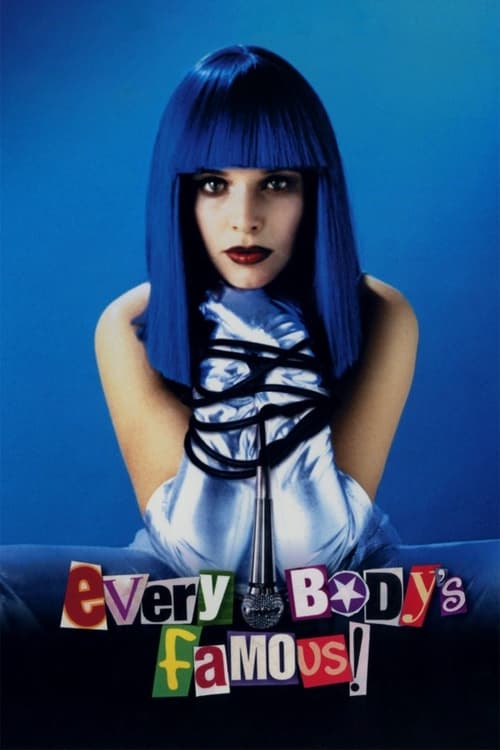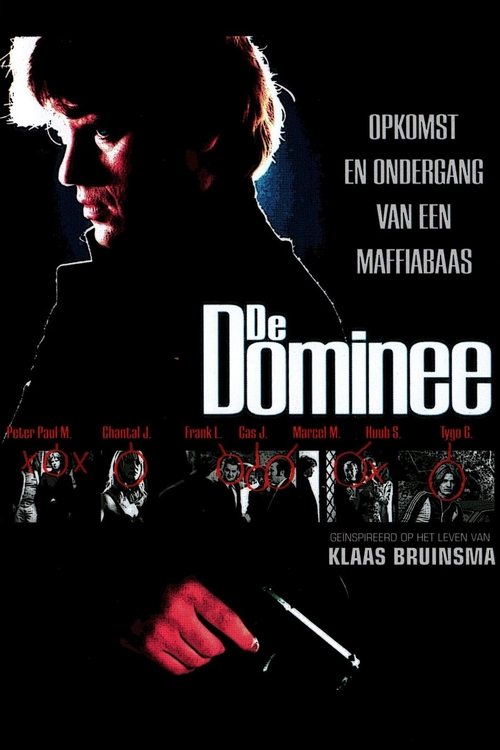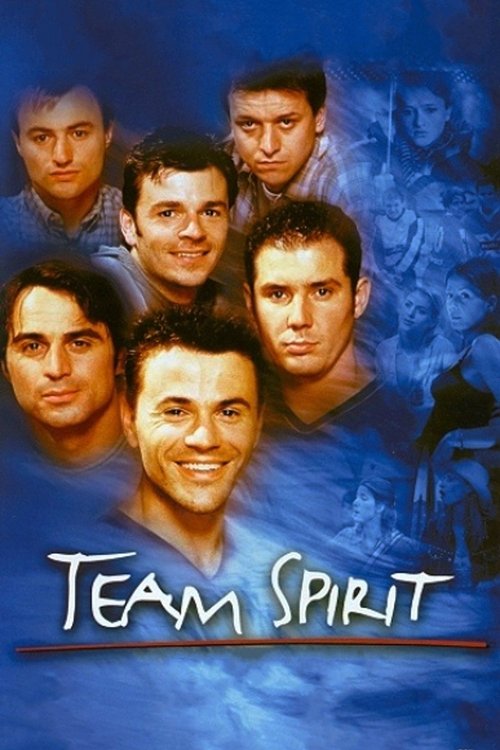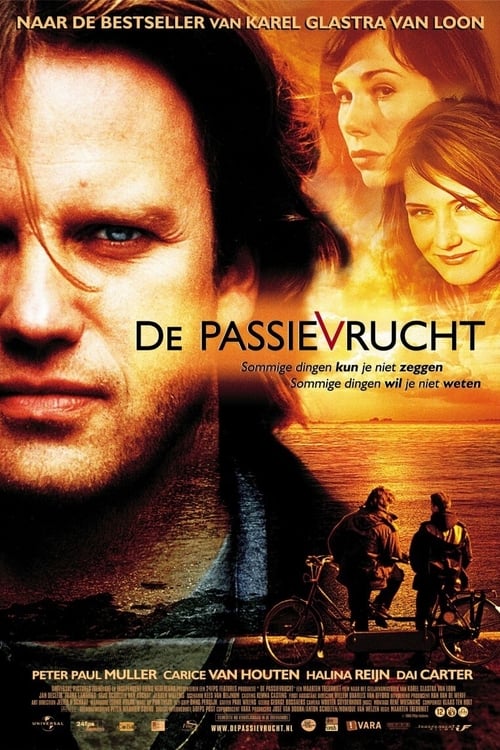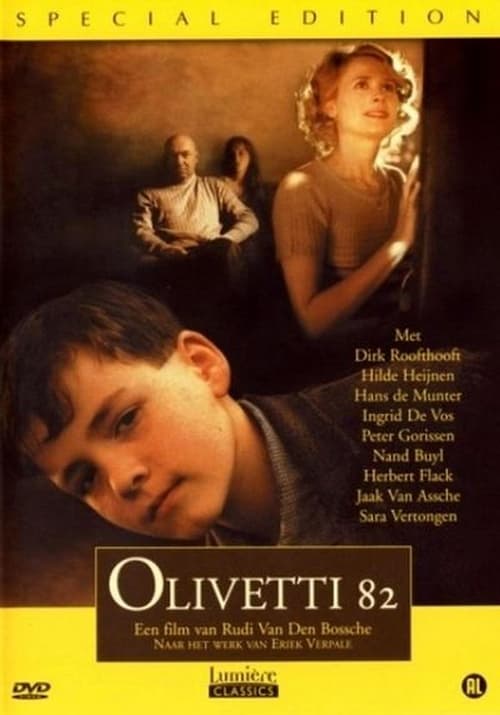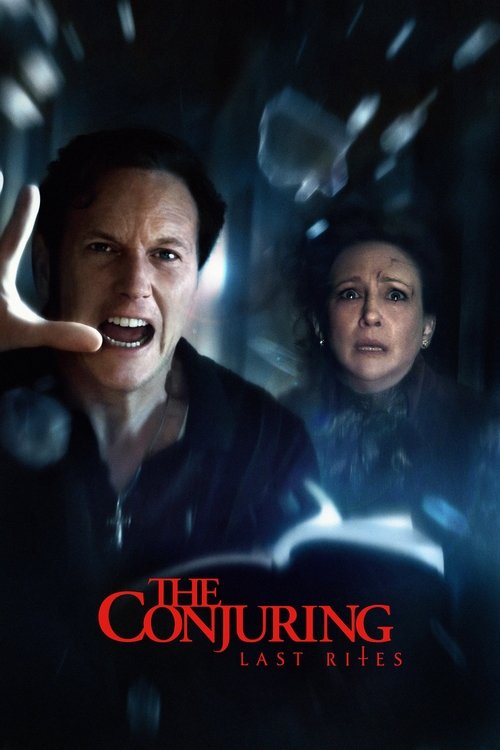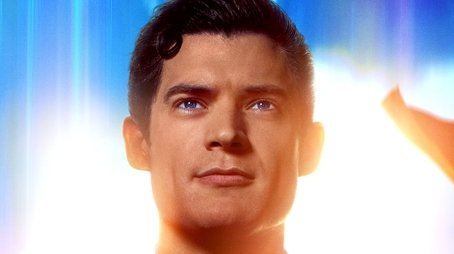
Ask Your Own Question
What is the plot?
The story of Everybody's Famous! opens in a modest Belgian town where Jean Vereecken, a factory worker, lives a quiet, struggling life with his wife Chantal and their teenage daughter Marva. Jean, played by Josse De Pauw, is a man burdened with dashed dreams of becoming a songwriter, and he pins all his hopes on Marva, his awkward and overweight seventeen-year-old daughter, believing she is destined for stardom despite her evident lack of talent. The film's opening scene is set at a dreary local talent contest where Marva performs with little confidence or passion, her voice faltering under the harsh judgment of the judges, who hold up paddles scoring her with low numbers. Jean watches her with unwavering optimism, his eyes shining with the desperate hope that she will one day be famous, even as Marva's rudeness and indifference to his support hint at the strain in their relationship.
Jean's life takes a sharp turn when he is suddenly laid off from his night shift job at a factory where he inspects bottles. The loss of employment deepens his sense of failure and humiliation. At home, Chantal, played by Gert Portael, remains a patient and supportive presence, but Jean's desperation grows. He becomes increasingly fixated on the idea that Marva's success in music could redeem their family's fortunes. The film captures Jean's emotional turmoil with quiet, intimate moments -- his weary face illuminated by the dim light of their cramped living room as he hums a melody he has composed, recording it on a small mini recorder. This song becomes a symbol of his last hope.
Meanwhile, the pop star Debbie, portrayed by Thekla Reuten, is introduced as the reigning queen of Belgian pop music, known for her flamboyant blue polyester wig and her glossy, manufactured persona. Unlike Jean and Marva's world of struggle and obscurity, Debbie's life is one of fame, but it is also hollow and exhausting. In a striking visual moment, Debbie is seen riding her bicycle in casual clothes, without her iconic blue wig, revealing a more vulnerable and authentic side beneath her celebrity facade. This contrast between public image and private reality sets up one of the film's central themes.
The plot's pivotal moment occurs when Jean's car breaks down on a quiet street. By chance, Debbie stops to help him, unaware of the storm that will follow. Jean seizes this opportunity and drugs Debbie, initiating a desperate and illegal plan: he kidnaps her, hoping to leverage her fame to launch Marva's career. Jean enlists his loyal but dim-witted friend Willy Van Outreve, played by Werner De Smedt, to assist him. Together, they rent a secluded cabin in the countryside to hold Debbie captive. This cabin becomes the film's key setting for the unfolding drama.
As Debbie is held hostage, Jean's demands are unconventional. Instead of asking for ransom money, he insists that Debbie's manager, Michael Jensen (Victor Löw), record Jean's song with Marva singing it. Jean believes this is the only way to break into the music industry and make his daughter a star. Michael, however, is a shrewd and opportunistic figure who sees the kidnapping as a chance to manipulate the situation for his own gain. He proposes a secret deal with Jean: if Jean keeps Debbie hidden and out of the public eye for as long as Michael wants, Michael will make Marva a star. This revelation exposes the cynical underbelly of the music business and adds a layer of complexity to the kidnapping plot.
While Jean is away managing negotiations, an unexpected relationship develops between Willy and Debbie. Willy, initially reluctant and awkward, begins to bond with Debbie in the isolation of the cabin. In a tender and emotional scene, Debbie breaks down in tears, confessing her loneliness and the pain of her manufactured life. She laments her pet dog left alone in her apartment, and moved by her vulnerability, Willy ventures out alone to retrieve the dog, showing a softer side of his character. This subplot humanizes both characters and contrasts with the more transactional relationships surrounding them.
Throughout the film, the media frenzy around Debbie's disappearance grows, ironically boosting the sales of her latest single. Michael watches this with a calculating eye, realizing that the kidnapping is turning into a publicity boon. Meanwhile, Marva records Jean's song in a music studio, facilitated by Michael, though neither Jean nor Michael fully trust each other. Marva's voice, though still uncertain, begins to gain attention, and the dream of fame seems within reach.
The tension escalates as Jean juggles the demands of the kidnapping, the music industry's machinations, and his family's hopes. The film carefully builds momentum toward a climax where all the characters' desires and schemes intersect. Despite the high stakes, the story maintains a tone of satirical comedy, highlighting the absurdity of celebrity culture and the lengths people go to achieve fame.
In the final act, the media frenzy reaches its peak. Debbie remains hidden, her absence fueling public fascination and sympathy. Marva's song becomes a hit, and she steps into the spotlight, performing on stage with newfound confidence. Jean and Chantal watch proudly, their faces alight with joy and relief. The film's closing scenes are suffused with warmth and optimism, showing that despite the chaos and deception, everyone achieves a form of happiness and recognition.
Importantly, the film contains no deaths. The confrontations--between Jean and Debbie, Jean and Michael, and the various negotiations--are resolved without violence or tragedy. Jean's kidnapping of Debbie, while illegal and desperate, is portrayed with humor and heart, emphasizing his love for his daughter rather than malice. The final resolution sees the characters' dreams fulfilled in unexpected ways: Marva becomes a star, Debbie's popularity surges despite her absence, and Jean's songwriting finally gains an audience.
The last moments linger on the family united, Marva performing confidently on stage, and the subtle, unspoken bond between Willy and Debbie. The film closes on the note that in a world obsessed with fame, sometimes the most important thing is simply to be seen and heard.
Thus, Everybody's Famous! concludes as a satirical yet hopeful tale about dreams, desperation, and the human desire for recognition, with all major plot twists, confrontations, and character arcs fully revealed and resolved.
What is the ending?
In the ending of "Everybody's Famous!", the story culminates in a dramatic confrontation and resolution involving the main characters. The film concludes with a sense of irony and reflection on fame, as the characters navigate their desires and the consequences of their actions.
As the film progresses towards its conclusion, we see the character of Marva, a young aspiring singer, who has been thrust into the spotlight due to her father's desperate actions. Her father, a factory worker named Jean, kidnaps a famous pop star, and this act of desperation leads to unforeseen consequences. Marva, initially excited about the attention, begins to grapple with the reality of fame and the pressures that come with it.
In the final scenes, Marva performs on stage, showcasing her talent. However, the performance is tinged with the weight of her father's actions and the chaos that ensued. The audience is captivated, but Marva's internal conflict is palpable. She realizes that the fame she sought is intertwined with her father's misguided attempts to secure a better life for her.
Jean, on the other hand, faces the repercussions of his actions. As the story unfolds, he is confronted by the authorities and the moral implications of his choices. His journey reflects a father's love but also the lengths to which one might go to achieve their dreams for their children, even if it leads to destructive outcomes.
The film closes with a poignant moment where Marva, now more aware of the complexities of fame, stands at a crossroads. She must decide whether to embrace the life that has been thrust upon her or to carve her own path, free from the shadows of her father's decisions. The final shot leaves the audience with a sense of uncertainty about her future, emphasizing the film's exploration of the nature of fame and the personal sacrifices made in its pursuit.
In summary, the ending of "Everybody's Famous!" encapsulates the struggles of its characters, particularly Marva and Jean, as they navigate the tumultuous waters of ambition, love, and the quest for recognition. Each character's fate is intertwined with the choices they made, leading to a resolution that is both bittersweet and reflective of the film's themes.
Is there a post-credit scene?
The movie "Everybody's Famous!" produced in 2000 does not have a post-credit scene. The film concludes its narrative without any additional scenes after the credits roll. The story wraps up with the resolution of the main plot, focusing on the characters' journeys and the impact of their experiences in the music industry. The ending emphasizes the themes of fame, family, and the pursuit of dreams, leaving the audience with a sense of closure regarding the characters' arcs.
What motivates the character Marie to pursue a career in music?
Marie, a young girl with a passion for singing, is driven by her desire to escape her mundane life and achieve fame. Her internal struggle is highlighted by her longing for recognition and the validation that comes with being a star. This motivation intensifies when she feels overshadowed by her family's expectations and the lack of support for her dreams.
How does the character Jean's obsession with fame affect his relationships?
Jean's obsession with fame leads him to make questionable decisions, including kidnapping Marie to ensure her rise to stardom. This act strains his relationships with his family and friends, as they struggle to understand his fixation. His internal conflict reveals a deep-seated fear of failure and a desperate need for validation, ultimately isolating him from those who care about him.
What role does the character of the father play in Marie's journey?
Marie's father is initially dismissive of her musical aspirations, representing the societal pressures that stifle creativity. His lack of support creates a rift between them, fueling Marie's determination to prove herself. As the story progresses, his eventual recognition of her talent signifies a turning point in their relationship, highlighting the theme of familial acceptance.
How does the character of the music producer influence the plot?
The music producer serves as a catalyst for Marie's rise to fame, embodying the industry's allure and pitfalls. His initial interest in Marie's talent propels the narrative forward, but his manipulative nature also exposes the darker side of the music business. His interactions with Jean and Marie reveal the complexities of ambition and the sacrifices made in pursuit of success.
What is the significance of the talent show in the story?
The talent show serves as a pivotal moment for both Marie and Jean, representing the culmination of their dreams and aspirations. It is a stage where their paths converge, highlighting the stakes of their choices. The show encapsulates the themes of ambition, competition, and the harsh realities of the entertainment industry, ultimately shaping their destinies.
Is this family friendly?
"Everybody's Famous!" is a Belgian musical comedy-drama that, while charming and humorous, contains some elements that may not be suitable for all children or sensitive viewers. Here are a few potentially objectionable or upsetting aspects:
-
Themes of Obsession: The film explores themes of fame and obsession, particularly through the character of a father who becomes increasingly fixated on his daughter's potential stardom. This obsession can be unsettling and may resonate with viewers who have experienced similar pressures.
-
Kidnapping Plot: A significant plot point involves the kidnapping of a pop star, which could be distressing for younger viewers. The portrayal of this event, while handled with a comedic tone, still touches on serious themes of crime and danger.
-
Emotional Turmoil: Characters experience a range of emotions, including disappointment, jealousy, and desperation. These emotional struggles may be intense for younger audiences to process.
-
Mature Themes: The film includes discussions about the music industry, fame, and the lengths people will go to achieve success, which may be more suitable for older children or teens who can understand these complexities.
-
Mild Language and Situations: There are instances of mild language and situations that may not be appropriate for very young children.
Overall, while "Everybody's Famous!" has a light-hearted premise and comedic elements, it does contain themes and scenes that may require parental guidance for younger viewers.

